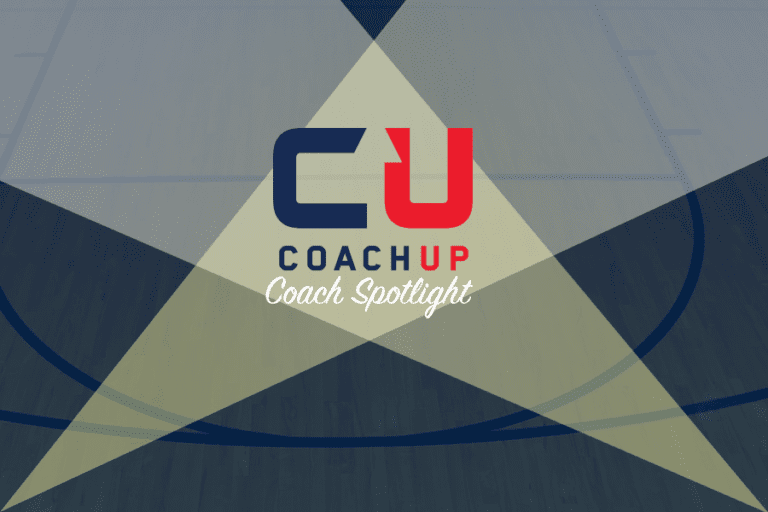This week, we interviewed Loyola Maryland’s basketball star, Charlie W.. In this interview, Charlie discusses the journey that has led him to play basketball at the collegiate level and his experience as a coach on CoachUp. He gives advice on development, recruiting, and coaching from his wealth of knowledge as an NCAA student-athlete. Here are some of his responses:

Q: When did you get into playing basketball? What has your journey been like?
Charlie: “I started playing basketball when I was 4-5 years old but did not take it seriously till I was 12. I always enjoyed basketball, but as a kid, I played a lot of different sports year-round. I fell in love with basketball around 12 and I decided that I wanted to solely focus on basketball and work as hard as possible at it. I struggled at first because I was decent at a recreational level, but had a lot of work to do if I wanted to play in high school/college. The journey has been the best part, progressing from not making my 6th grade AAU team to playing D1 basketball.”
Q: How do you feel that your youth training impacted your trajectory to playing in college?
Charlie: “My youth training is the reason why I’m playing basketball in college now. Without proper youth training, I definitely would not have made it to the collegiate level. When I first started taking basketball seriously, I started working with a trainer, Justin Bright, who changed the course of my career and life. He showed me true work ethic, and how to work out in an effective manner to get better. I also met two other trainers, Tiny Adams and John Hawthorne, both former professional players, who pushed me to work harder and how to work intentionally, and without their help and guidance I would not be where I am today.”
Q: What are your tips for the recruiting process? Any words of wisdom for younger athletes who are aspiring to play at higher levels and/or college?
Charlie: “My biggest tip for the recruiting process is to not worry about the recruiting process until you have to. Every aspiring collegiate athlete should focus on just getting better, and the rest will take care of itself. Throw yourself into hard work, and become the best player you can be. If you are good, coaches will find you no matter where you are for the most part. Exposure does not matter if you are not good enough, so the most important thing is to work as hard as possible and become the best player possible and I promise the rest will take care of itself.”
Q: How has the transition from high school to collegiate basketball been for you?
Charlie: The transition has been good, but challenging, just like any transition in life. The biggest thing is to view the challenges as a learning experience. Collegiate basketball is obviously going to be tougher, the game is more physical and guys are just better, but embracing the difficulty of the situation has been the best thing for me. I’ve had to work against adversity and tough situations my whole basketball life, so I take pride in doing that again. Just to clarify, I had hip surgery in May of 2021 and was then injured for half of my freshman year, but now I am fully recovered and looking to bounce back next year!
Q: How have you been balancing CoachUp with your summer training and other jobs/obligations?
Charlie: “CoachUp allows a lot of flexibility to schedule your workouts so balancing CoachUp with my summer training has been very easy. I make sure to have a consistent workout schedule during the week and am able to get 2-3 workouts in a day and just schedule my CoachUp sessions around my workout schedule. Being able to create my own schedule makes balancing the two very simple/easy.”
Q: What would you say to a fellow NCAA athlete who is considering joining CoachUp?
Charlie: “I would highly recommend CoachUp to a fellow NCAA athlete. NCAA athletes do not have much time on their hands and I know a lot of my fellow athletes with their limited summer break do not want to get a full-time job that takes up most of their time. CoachUp is a great way to still make money in a limited amount of time while teaching the game you love. CoachUp sessions really do not feel like work to me because I am teaching the game I love to play, and basketball is not work to me, it is my passion. I am so happy I found CoachUp and it has been a game-changer for me this summer.”
Q: What are some of your best coaching tips?
Charlie: “The biggest thing is that your clients have to know you care about them. Nothing else matters if they think you don’t care and that you’re just in it for the money. Developing a relationship with your clients where there is a trust established is vital, and allows you to hold them accountable more and really have an impact on them and their learning… being authentic and not trying to be anyone else is important. Athletes will be able to tell if… you are not being your authentic self, they will not respect you as much, and therefore your coaching will not be as powerful or valuable…it is important to state your standards and the things you want the client to be executing, and the first few sessions might be a good amount of talking and teaching. After that though, make sure you are not talking more than you have to and let the athlete work through their problems. They are not paying you to hear you talk the whole time, and talking the whole time is not coaching. Let them get a good workout in and mess up, because that’s a part of learning, and don’t feel like you have to correct every single mistake they make.”
Interested in joining our growing community of current NCAA athletes coaching on CoachUp? Learn more about CoachUp University and how you can get in on the action.
How useful was this post?
Click on a star to rate it!
Average rating 3 / 5. Vote count: 1
No votes so far! Be the first to rate this post.



